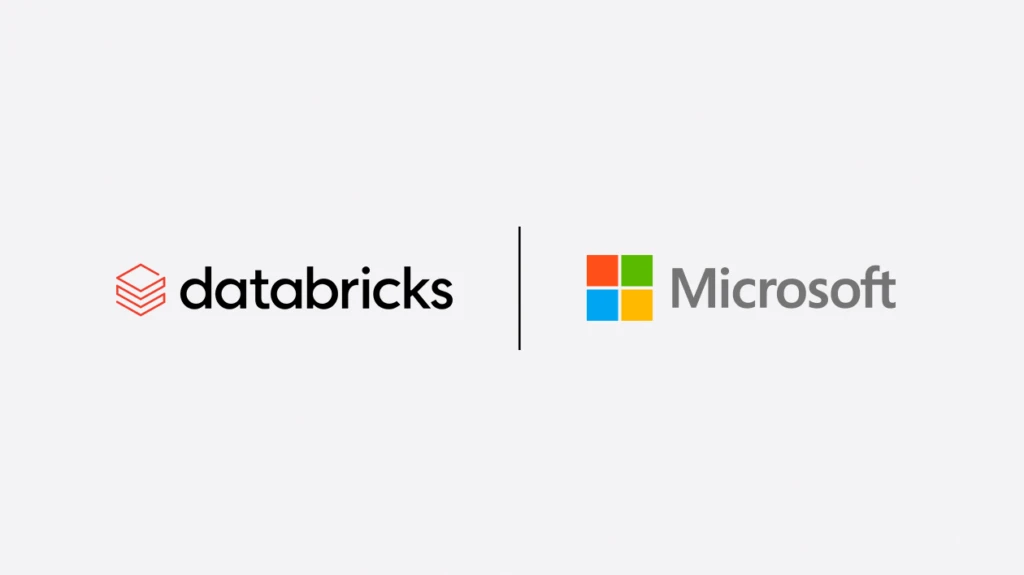
Organizations have long collected massive amounts of data from diverse sources, leading to the creation of data lakes for large-scale storage. However, these data lakes lacked key features like data quality. The Lakehouse architecture emerged to bridge the gap between data lakes and traditional data warehouses, offering a comprehensive solution for enterprise data infrastructure. Delta Lake, serving as the storage foundation, has gained wide acceptance. Databricks, a pioneer in the Data Lakehouse model, offers this architecture as part of its Data Intelligence Platform, and it’s fully integrated into Microsoft Azure as Azure Databricks, making Azure the ideal cloud environment for running Databricks workloads.
In this blog, we explore the key benefits of Azure Databricks:
Seamless Azure integration
Regional availability and performance
Security and compliance
A unique partnership between Microsoft and Databricks
Seamless Integration with Azure
Azure Databricks, as a first-party service on Microsoft Azure, provides native integration with essential Azure services. This allows for quick onboarding into Databricks with just a few clicks.
Key Native Integrations:
Microsoft Entra ID (formerly Azure Active Directory): Azure Databricks integrates seamlessly with Entra ID for managed access control and authentication. Microsoft and Databricks engineers collaborated to offer this out-of-the-box functionality.
Azure Data Lake Storage (ADLS Gen2): Azure Databricks can directly read and write data from ADLS Gen2, optimized for fast data access, enhancing data processing and analytics.
Azure Monitor and Log Analytics: Azure Databricks workloads can be monitored via Azure Monitor, offering insights through Log Analytics.
Databricks Extension for VS Code: This extension connects the local development environment to the Azure Databricks workspace, streamlining development workflows.
Additional Value-Adding Integrations:
Power BI: Azure Databricks integrates with Power BI to enable data visualization and business intelligence, accessible to all business users. With features like Direct Lake mode and Unity Catalog support, users can analyze vast datasets with minimal delay.
Azure Data Factory (ADF): ADF integrates with Azure Databricks to create scalable data pipelines, facilitating data ingestion from 100+ sources.
Azure Open AI: Azure Databricks supports machine learning (ML) workflows, including access to large language models (LLMs) directly from SQL.
Microsoft Purview: Microsoft Purview integrates with Azure Databricks’ Unity Catalog, enabling data governance and metadata management across the enterprise.
Best of Both Worlds: Azure Databricks and Microsoft Fabric
Microsoft Fabric is a unified analytics platform that integrates seamlessly with Azure Databricks, providing tools like Data Engineering, Power BI, and OneLake. By creating shortcuts to Delta Lake tables in Azure Databricks, businesses can streamline data analytics without data duplication, benefiting from direct data access through Power BI’s Direct Lake mode.
Regional Availability and Performance
Azure’s global presence and scalability make it the perfect environment for Azure Databricks workloads:
Compute Optimization: Azure offers a variety of compute options, including GPU-enabled instances to accelerate ML and AI workloads.
Global Reach: With 43+ regions worldwide, Azure Databricks ensures high availability and performance.
Security and Compliance
Azure Databricks inherits Azure’s enterprise-grade security and compliance measures:
Azure Security Center: Provides real-time monitoring and threat detection.
Compliance Certifications: Azure Databricks is certified under PCI-DSS and HIPAA, ensuring compliance with regulatory standards.
Azure Confidential Compute: Enables end-to-end data encryption using hardware-based TEEs, ensuring data is secure while in use.
Encryption: Supports customer-managed keys via Azure Key Vault and HSM for added security.
Unique Partnership: Microsoft and Databricks
The partnership between Microsoft and Databricks stands out for several reasons:
Joint Engineering: Collaborative engineering efforts ensure tight integration and optimized performance.
Service Operation and Support: Azure Databricks benefits from Microsoft’s support infrastructure, SLAs, and security policies.
Unified Billing: Customers can manage Azure Databricks costs alongside other Azure services through a unified billing system.
Co-Marketing and Sales: Both companies collaborate on marketing campaigns, customer support, and go-to-market activities, elevating customer care.
Boost Productivity with Azure Databricks Azure Databricks provides a robust, secure, and integrated data analytics and AI platform, enhancing productivity, cost-efficiency, and return on investment (ROI). Its deep integration with Azure services, combined with the global presence and security standards of Microsoft, makes Azure Databricks an ideal choice for organizations aiming to maximize their data potential.